HLT1RAE Assignment: Article Summary on Yoga and Mental Health
VerifiedAdded on 2023/06/07
|5
|654
|426
Report
AI Summary
This report summarizes the article "The Effect of Yoga on Stress, Anxiety, and Depression in Women" by Shohani et al. (2018), which investigated yoga as a complementary medicine for women. The quasi-experimental study involved women from an Ilam yoga club in Iran, using the DASS-21 questionnaire to assess stress, anxiety, and depression. Participants engaged in hatha yoga exercises three times a week for 12 sessions. Results from 52 women showed significant reductions in depression, anxiety, and stress (P<0.001) after the intervention. The study concluded that yoga effectively reduces these mental health issues and can be considered complementary medicine, potentially lowering treatment costs. Future research is recommended to explore long-term effects.
1 out of 5
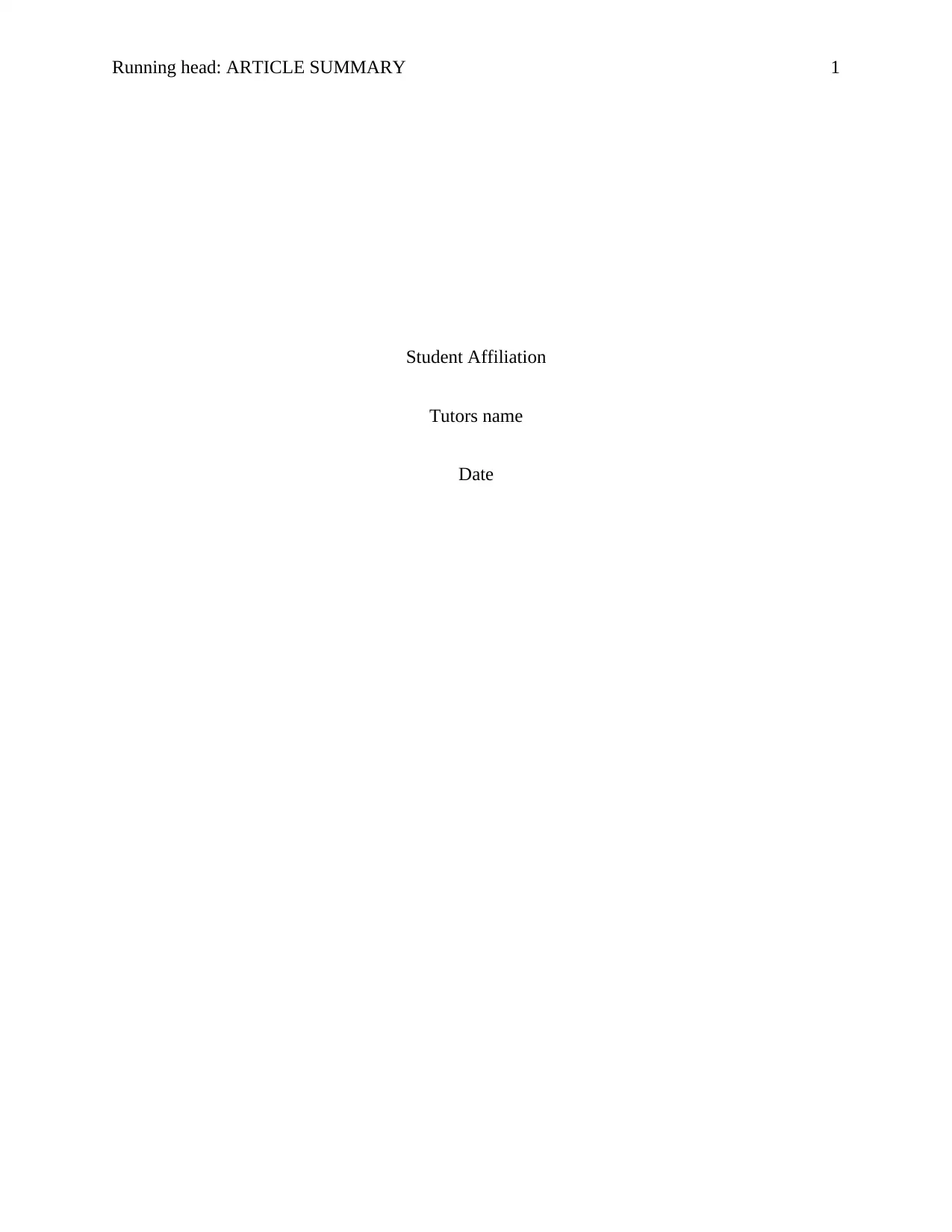
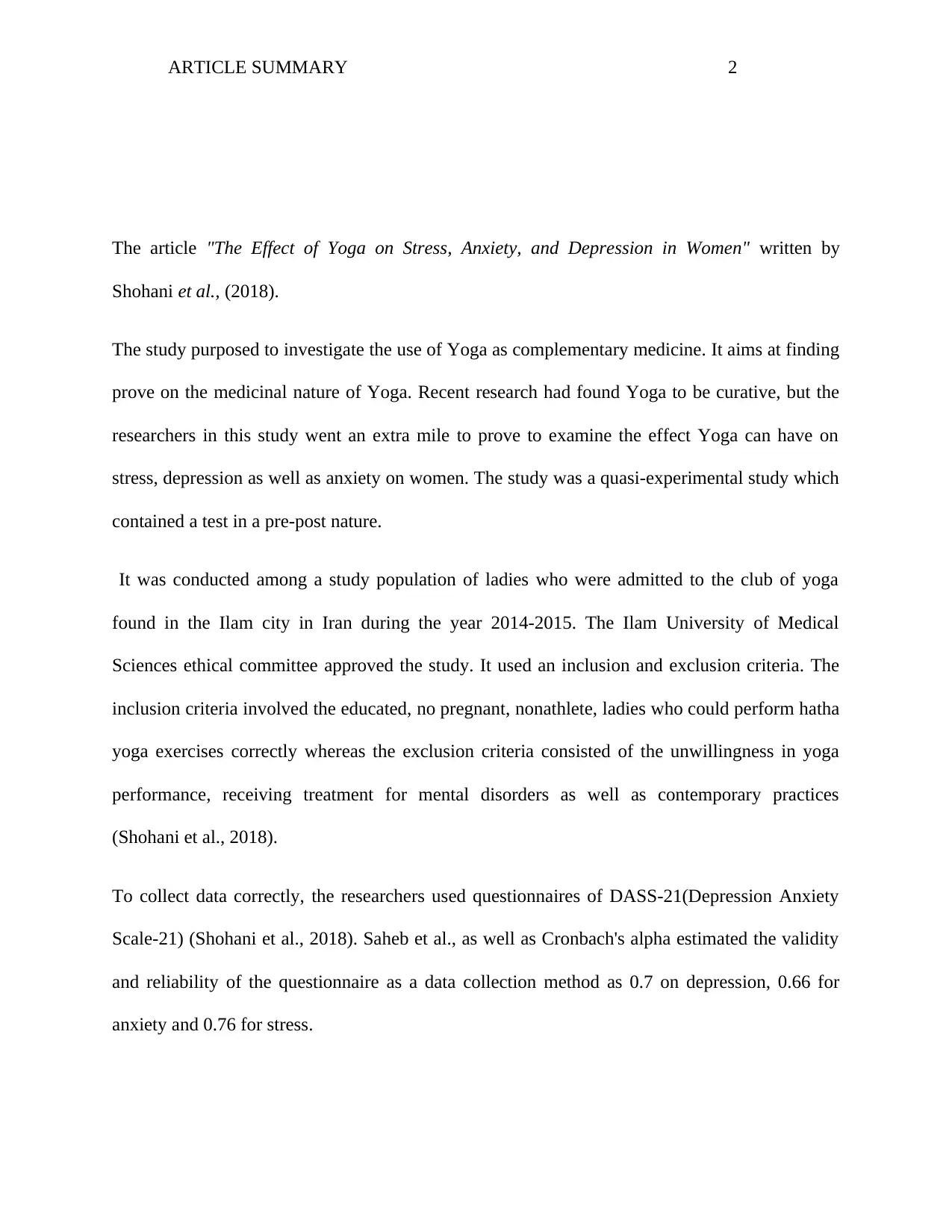
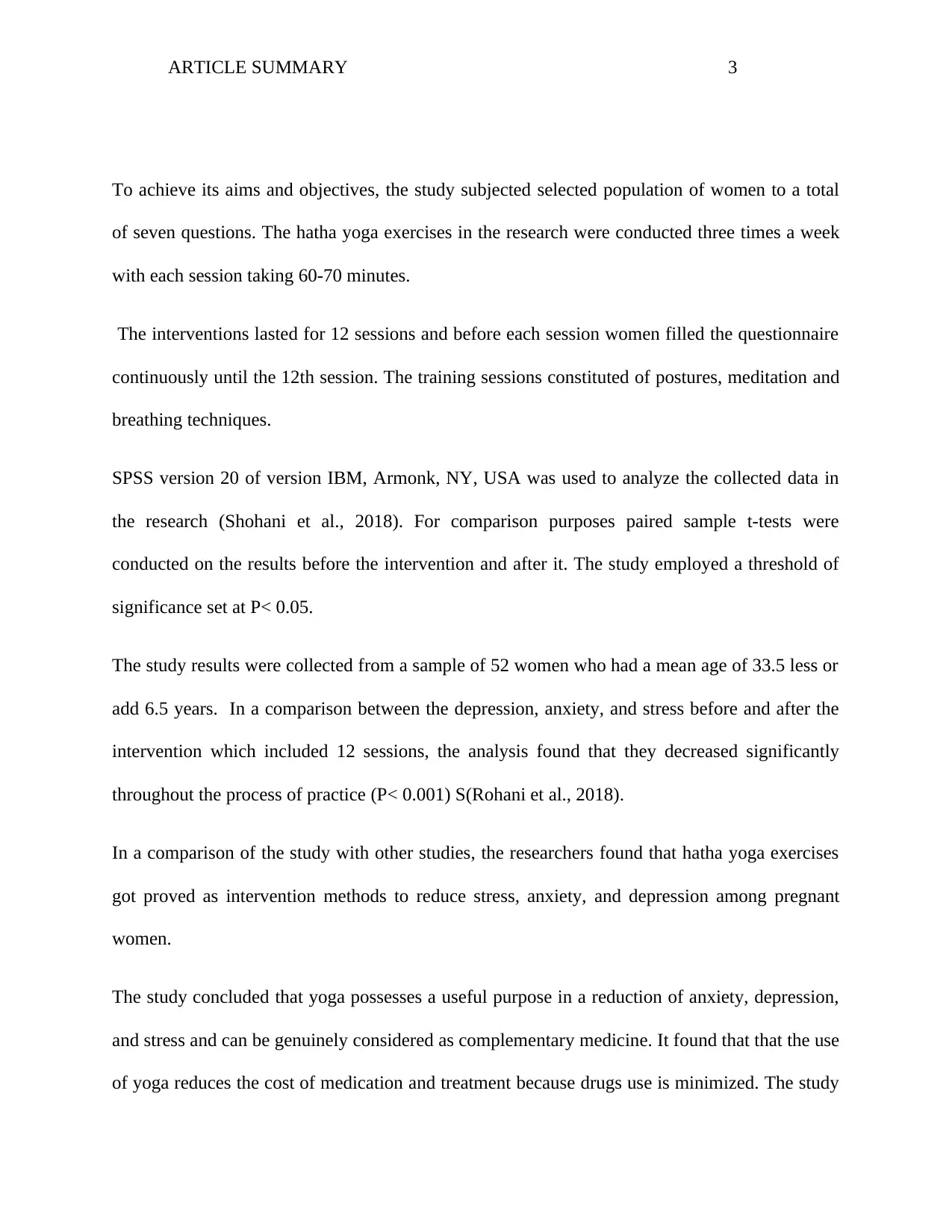

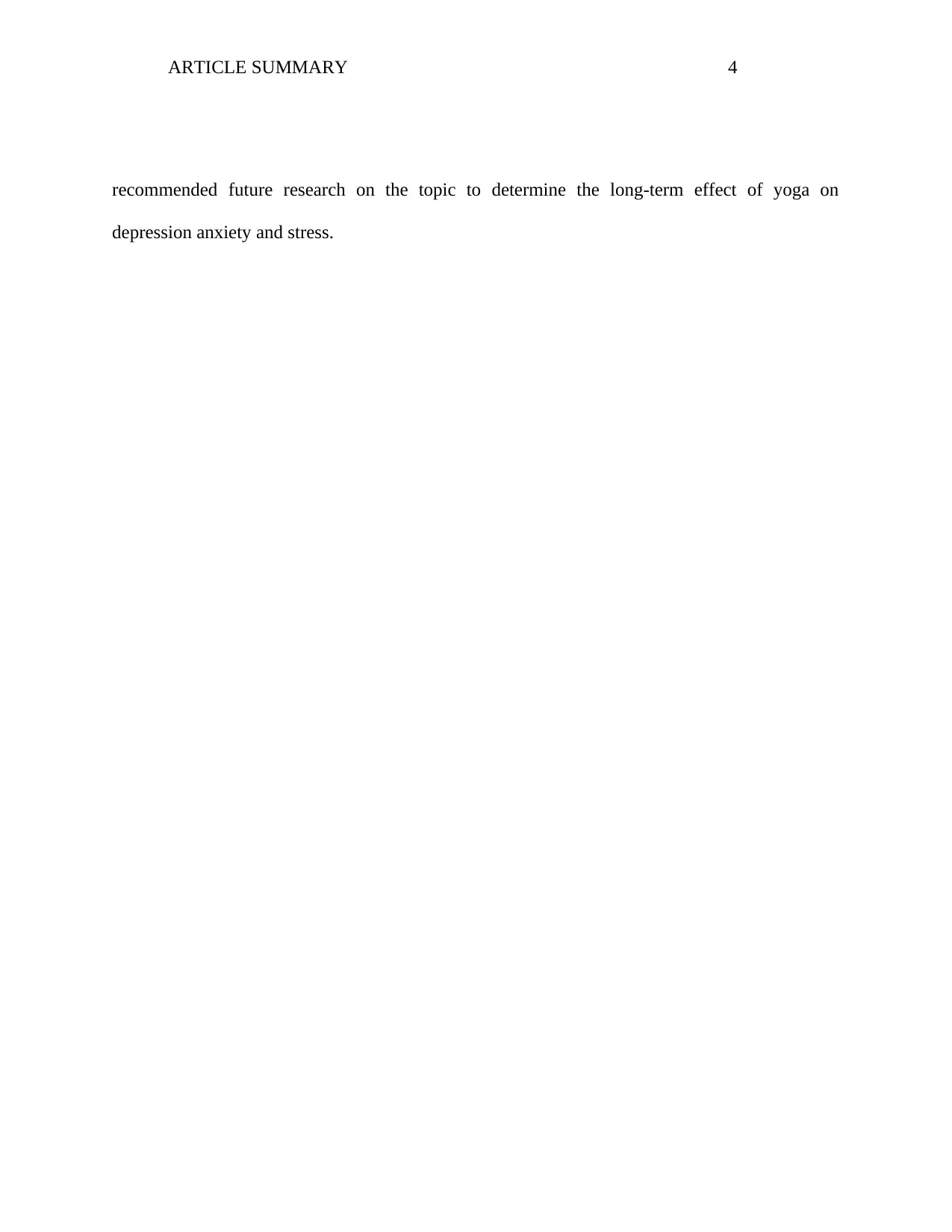
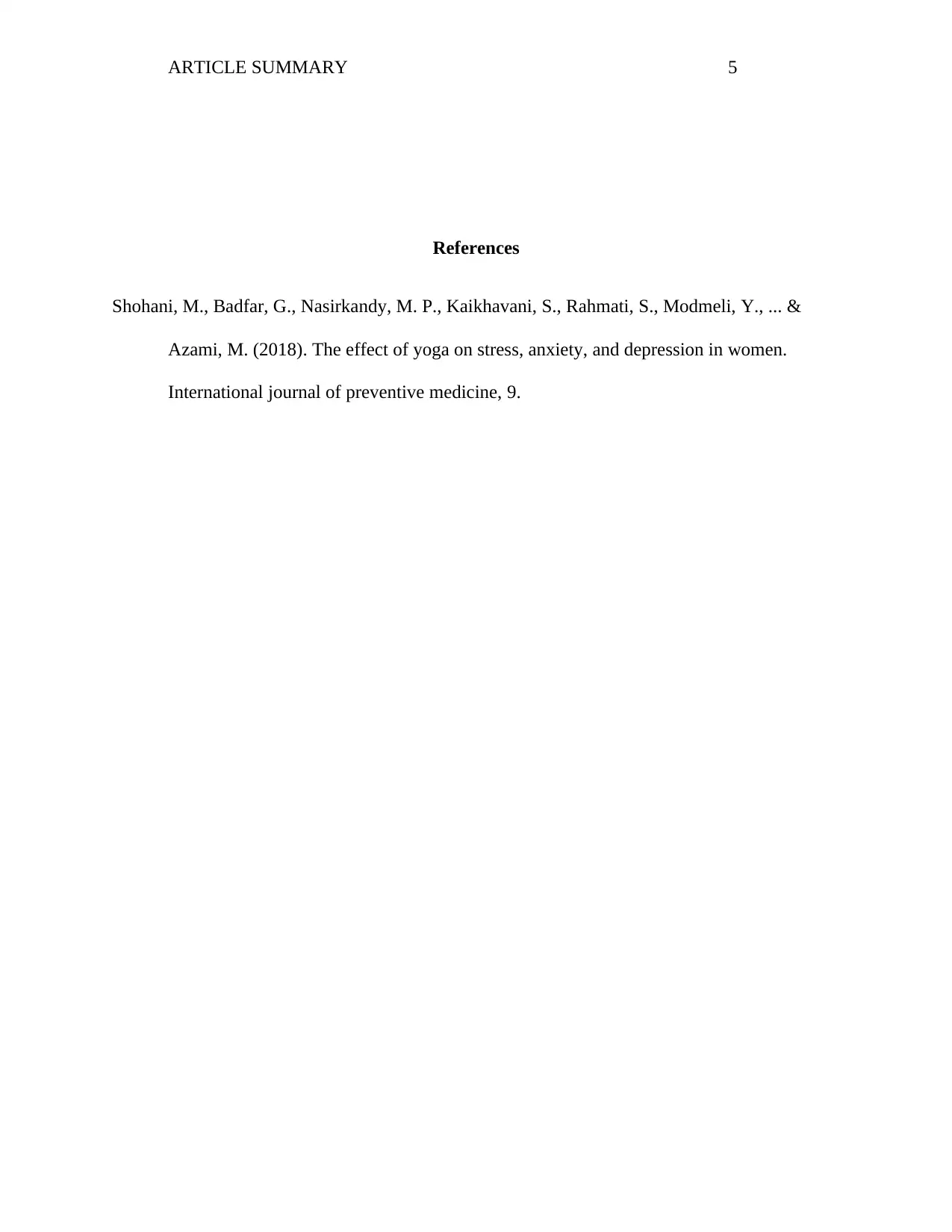






![[object Object]](/_next/static/media/star-bottom.7253800d.svg)